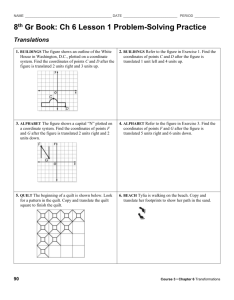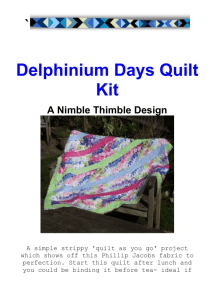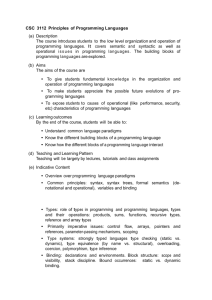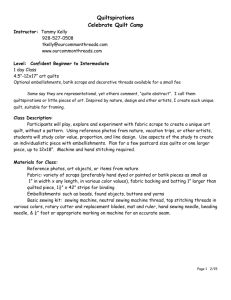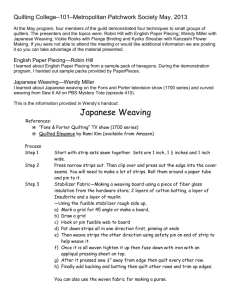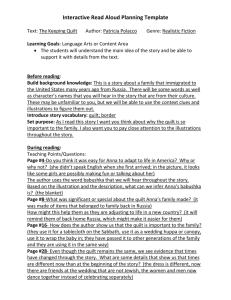Quilt Binding Variations: Piping= inset strip less than ¼” wide Flange
advertisement
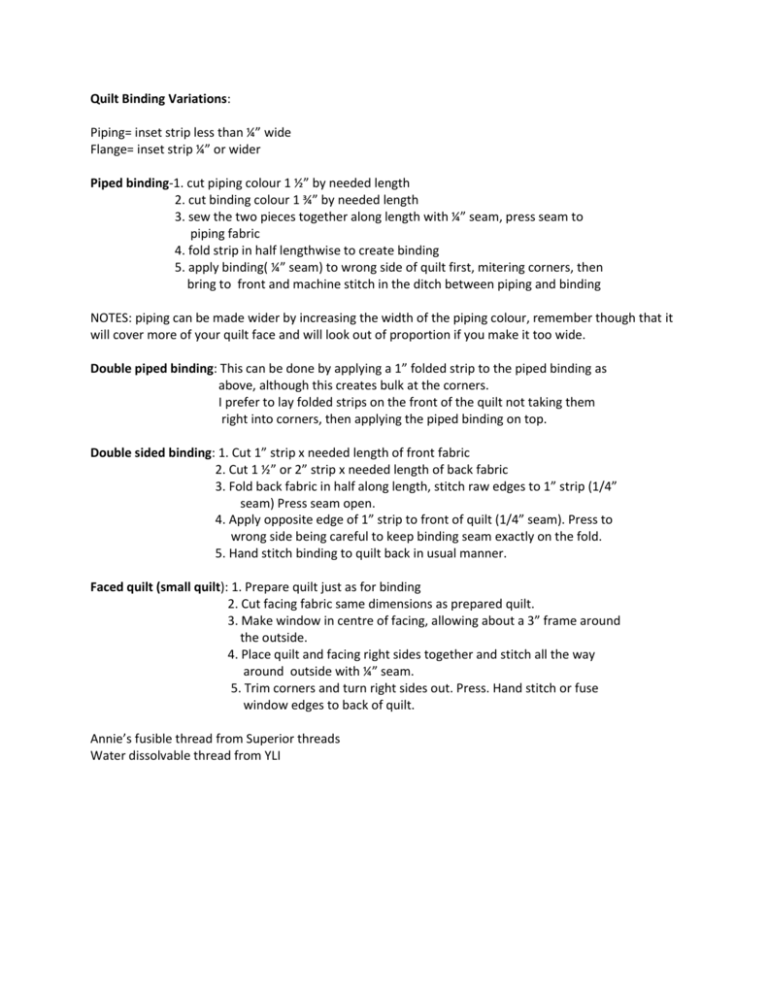
Quilt Binding Variations: Piping= inset strip less than ¼” wide Flange= inset strip ¼” or wider Piped binding-1. cut piping colour 1 ½” by needed length 2. cut binding colour 1 ¾” by needed length 3. sew the two pieces together along length with ¼” seam, press seam to piping fabric 4. fold strip in half lengthwise to create binding 5. apply binding( ¼” seam) to wrong side of quilt first, mitering corners, then bring to front and machine stitch in the ditch between piping and binding NOTES: piping can be made wider by increasing the width of the piping colour, remember though that it will cover more of your quilt face and will look out of proportion if you make it too wide. Double piped binding: This can be done by applying a 1” folded strip to the piped binding as above, although this creates bulk at the corners. I prefer to lay folded strips on the front of the quilt not taking them right into corners, then applying the piped binding on top. Double sided binding: 1. Cut 1” strip x needed length of front fabric 2. Cut 1 ½” or 2” strip x needed length of back fabric 3. Fold back fabric in half along length, stitch raw edges to 1” strip (1/4” seam) Press seam open. 4. Apply opposite edge of 1” strip to front of quilt (1/4” seam). Press to wrong side being careful to keep binding seam exactly on the fold. 5. Hand stitch binding to quilt back in usual manner. Faced quilt (small quilt): 1. Prepare quilt just as for binding 2. Cut facing fabric same dimensions as prepared quilt. 3. Make window in centre of facing, allowing about a 3” frame around the outside. 4. Place quilt and facing right sides together and stitch all the way around outside with ¼” seam. 5. Trim corners and turn right sides out. Press. Hand stitch or fuse window edges to back of quilt. Annie’s fusible thread from Superior threads Water dissolvable thread from YLI
